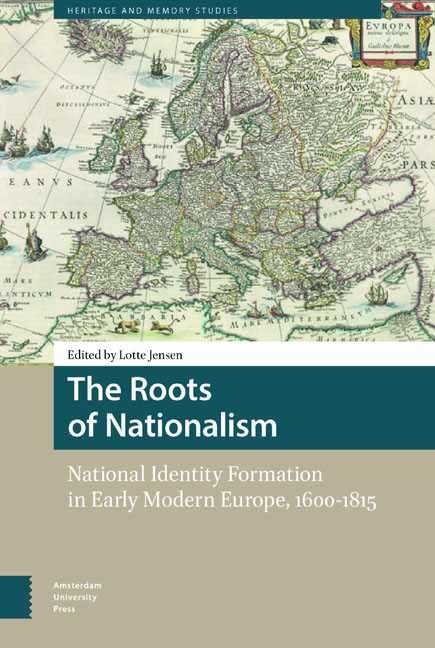Book contents
- Frontmatter
- Contents
- The Roots of Nationalism: Introduction
- Part One The Modernist Paradigm Contested
- Part Two The Genealogy of National Identity
- Part Three Negative Mirror Imaging
- Part Four Maps, Language and Canonisation
- Part Five Nation in the Age of Revolution
- List of Illustrations
- List of Contributors
- Index
3 - Revolutionary France and the Origins of Nationalism: An Old Problem Revisited
Published online by Cambridge University Press: 03 February 2021
- Frontmatter
- Contents
- The Roots of Nationalism: Introduction
- Part One The Modernist Paradigm Contested
- Part Two The Genealogy of National Identity
- Part Three Negative Mirror Imaging
- Part Four Maps, Language and Canonisation
- Part Five Nation in the Age of Revolution
- List of Illustrations
- List of Contributors
- Index
Summary
Like many people, I first became interested in nationalism in the 1980s. It was a moment when we seemed to be on the brink of a new ‘springtime of nations’. Names that seemed to have vanished from the map forever as sovereign entities – Latvia, Serbia, Lombardy, Flanders – seemed to be clamoring for national rebirth. Journalists were finding it impossible to resist the seductive, if misleading, image that with the thawing of the Cold War, deeply-buried national passions were again germinating in long-frozen soil. By the late 1990s, with the map of Europe now changed, and nationalism apparently producing a bloody harvest in far too many locations, I decided to write a book about how the phenomenon had arisen in France, and the implications of the French case for other countries.
Looking back on that period today, it has become clear that in some important ways, this new springtime of nations was more of a false dawn. For one thing, it now seems apparent that the decades since the end of the Cold War have been at least as deeply marked by globalisation, and the growth of many different sorts of transnational bonds and contacts and movements, as by nationalism. In many cases, somewhat paradoxically, nationalism has only flourished because of these new supra-national connections. The robust national movements in Scotland and Catalonia, for instance, only developed in the way they did because of the assumption that as small independent nations they would find a place in the European Union. In the former eastern bloc, no sooner did nationalist movements achieve their goals, than the nations in question eagerly petitioned to surrender important parts of their national sovereignty to the European Union, while also applying to join NATO. It has also become clear that in an age where states have far greater responsibilities towards their citizens than they once did, the acquisition of territory and population, however much it may serve a nationalist goal, can also amount to a mixed blessing, or indeed to no blessing at all. There are now some territories in Europe that might be defined as, at least in some senses, nationally unwanted.
- Type
- Chapter
- Information
- The Roots of NationalismNational Identity Formation in Early Modern Europe, 1600–1815, pp. 67 - 84Publisher: Amsterdam University PressPrint publication year: 2016



